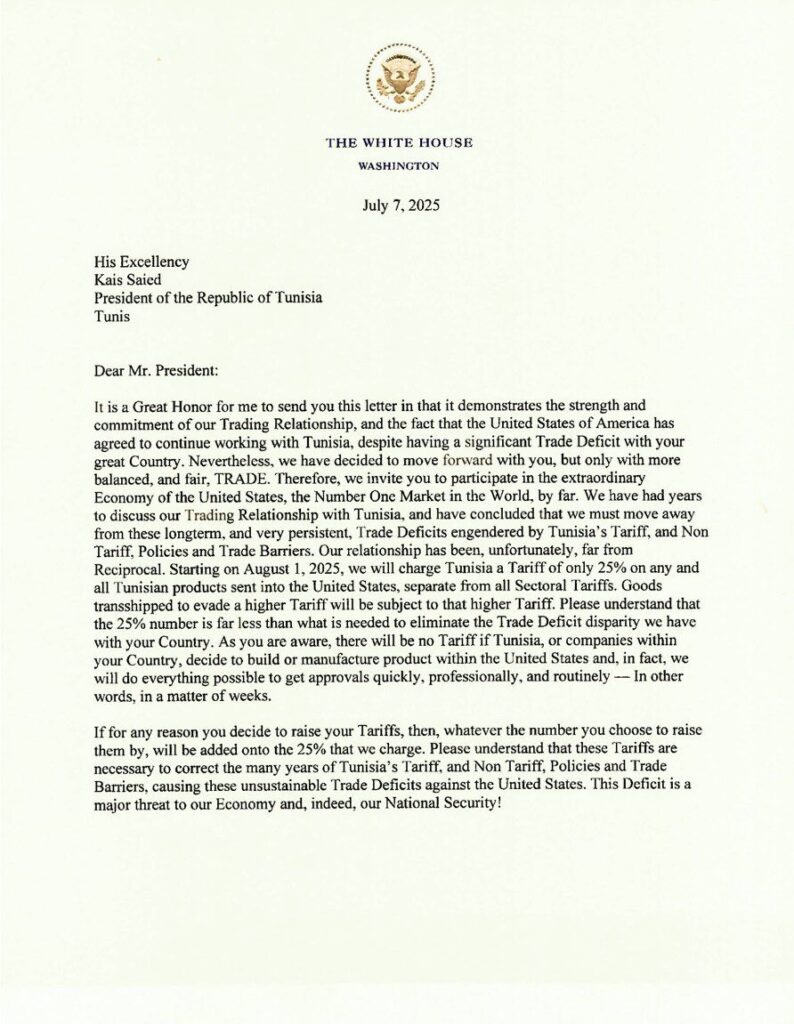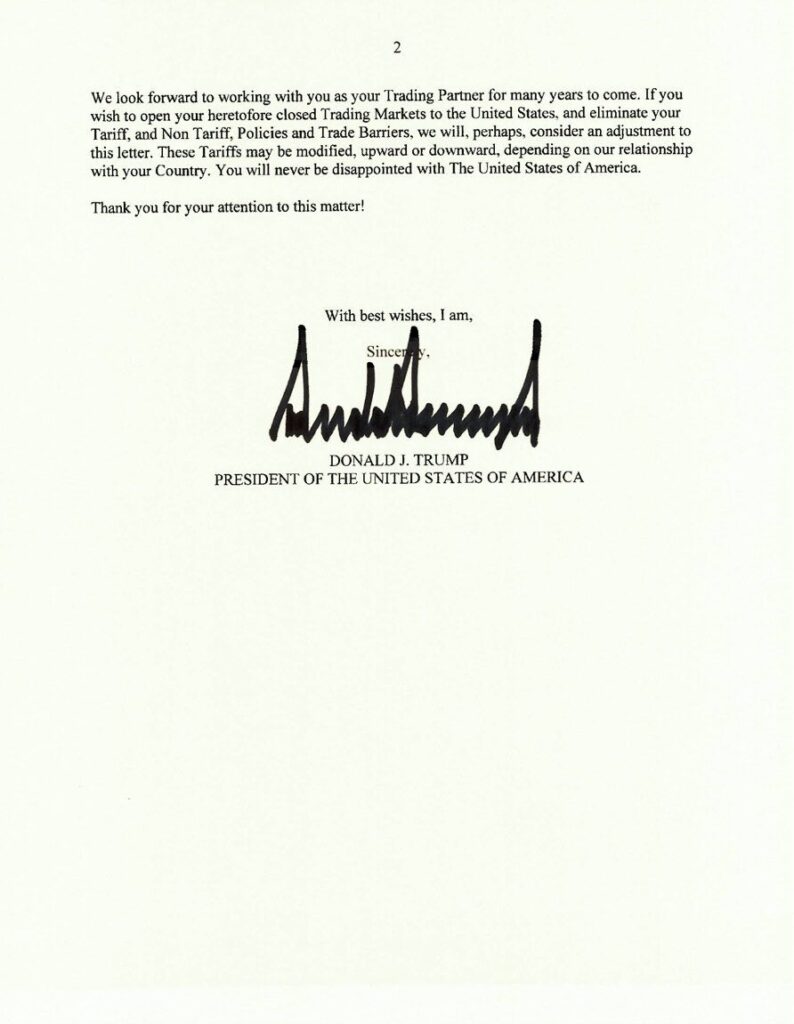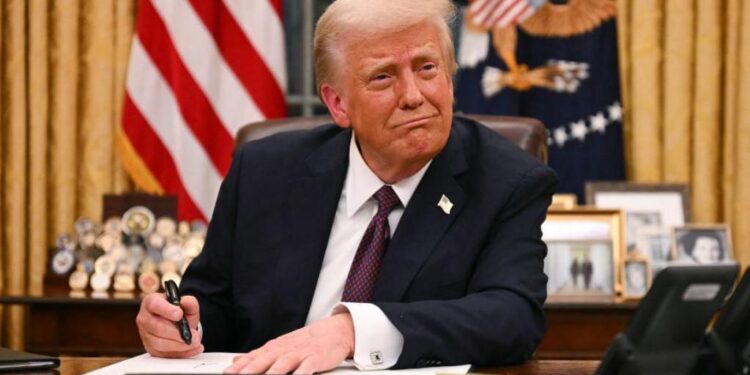In a letter addressed to President Kaïs Saïed, American president Donald Trump confirms the entry into force, from August 1, of customs duties of 25 % on Tunisian exports to the United States-a measure expected since April, but now formalized.
This price is part of a unilateral overhaul of American trade policy, aimed at correcting what Trump describes “structural commercial imbalances”.
Tunisia harshly struck by Trump: 28 % American customs duties
In the letter, Trump insists that it is “an honor” to continue working with Tunisia, while regretting the persistence of a significant trade deficit. He claims that this deficit is fueled by Tunisian pricing and non -pricing barriersjudged excessive, and by the absence of reciprocity in trade.
“Our commercial relationship with Tunisia was, unfortunately, far from reciprocal,” he wrote.
Faced with this situation, the White House decided to apply a Unique 25 % taxationdistinct from other sectors. All Tunisian products transhipped to the United States via third countries to circumvent these rights will also be taxed.
An opening conditioned to local production
True to his relocation doctrine, Trump offers an alternative: Tunisian companies who choose to invest and produce on American soil can be exempt of these customs duties. He even promises an accelerated approval procedure: “We will do everything to obtain the authorizations in a few weeks”.
A warning against any response
Further, the American president warns that all Increase in Tunisian prices will be immediately followed by a proportional increase on the American side, beyond the 25 % initial threshold.
“These trade deficits represent a major threat to our economy and, in reality, for our national security,” concludes Trump.
A global tariff policy
This measure does not only aim at Tunisia. The White House has also announced that Trump could send other letters in the coming days and weeks. Among the targeted countries yesterday, Monday, July 7, were: Japan (25 %), South Korea (25 %), South Africa (30 %), Kazakhstan (25 %), Laos (40 %), Malaysia (25 %), Myanmar (40 %), Tunisia (25 %), Bosnia and Herzegovina (30 %), Indonesia (32 %), Bangladesh (35 %) %), Cambodia (36 %) and Thailand (36 %)












